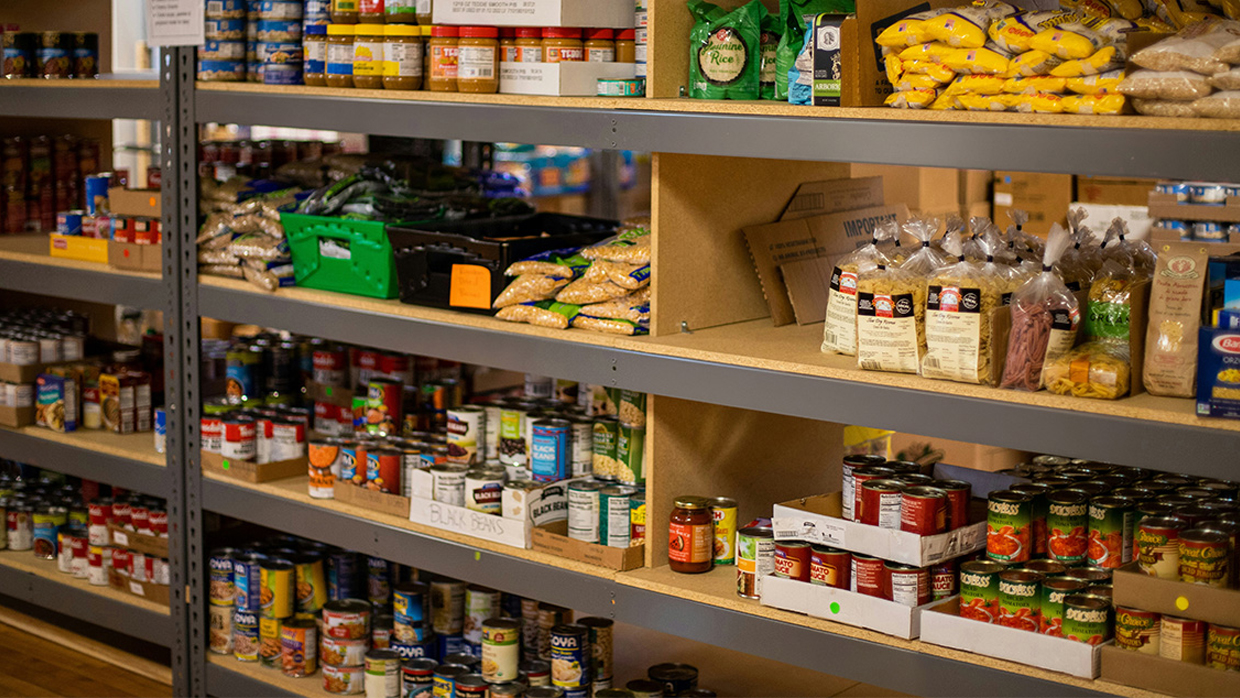Feeding Hope: Strategies to Combat Hunger

Social Determinants of Health (SDOH) are non-medical factors that affect health. Everything in a person’s life plays a role - where they were born, work, or live; their age; access to healthcare; etc.1 Sodexo Registered Dietitian Nutritionists (RDNs) address food insecurity and health equity by enabling healthier communities. This is one of the five benefits of the Clinicia™ program that serves as the foundation of Sodexo’s Clinical Nutrition Services.
Impact of Food Insecurity
Food insecurity and lack of access to affordable healthy food are persistent problems. In 2023, more than 47 million people and 7.2 million children lived in households that were uncertain of having, or unable to acquire, enough food to meet their needs.2 Certain populations are disproportionately affected, including low-income, Black and Hispanic households, and homes with young children or those headed by a single adult.2
The experience of hunger, particularly if prolonged or repeated, has negative health consequences. Food insecurity has been found to be associated with a range of chronic illnesses including cardiovascular disease, certain cancers, and diabetes.3 The problem involves not only amounts, but types of food available. In the United States, approximately 13.5 million people lack access to nutritious affordable food from large grocery stores.3 Often the scarcity of fresh food options is replaced with highly processed, convenience, and fast foods which may contribute to chronic disease.3
There has been a large gap in understanding the link between food insecurity and chronic disease.3 However, interventions that are community-based and/or connected to health care settings have been shown to improve health outcomes, reduce disparities, and address overall food insecurity.3
Sodexo Community Programs
SodexoRDNs are involved in community nutrition education programs, food pantries, healthy produce markets, and teaching kitchens. Sodexo also enjoys a special partnership with Abbott Nutrition to help identify and obtain nutrition supplements for individuals in need. RDNs focus on addressing the individual nutritional needs of both patients and members of the community.
An excellent example of outreach nutrition care is the “Meals While You Heal” program by Arnot Health in Elmira, New York. This Sodexo-coordinated service distributes frozen entrees to patients undergoing cancer treatment. The meals are delivered to the cancer center by the local Meals on Wheels and distributed to patients when they are in for treatment. In the past year, Arnot has provided over 2600 meals to patients.
Sodexo RDNs at Rush Copely Medical Center in Aurora, Illinois enhance patients’ home meals with both food assistance and teaching kitchens. In addition to recommending the take-home meals provided in the cancer center, the RDNs conduct a healing kitchen. This program teaches cancer patients in the community how to better prepare cost effective and healthful meals for recovery. Rush Copely also distributes pantry bags at various locations throughout the hospital including pediatrician’s offices, the emergency department, and the diabetes center.
Sodexo RDNs identify convenient and economical means of obtaining healthy food. University Hospitals (UH) in Cleveland, Ohio operate “Food for Life Markets (FFLM)” throughout the UH health system. Patients screened for food insecurity by their medical providers are referred to the FFLM. These markets are managed by an RDN and provide fresh produce, frozen meat, and non-perishable grocery staples. RDNs guide the shoppers’ food choices based on their medical needs and personal preferences. The patients particularly enjoy the variety of nutrition education handouts and recipes. The FFLM is part of a larger Food as Medicine initiative at UH that includes cooking demos and grocery store tours.
In Fort Wayne, Indiana, Sodexo’s Pontiac Street Market brings affordable food options to an area that has been labeled a “food desert.” The market is a modern, attractive, full-service grocery store that offers everything from fresh produce, meat, dairy foods, and baked goods to prepared meals and sandwiches. Community Outreach RDNs encourage residents to shop at the Pontiac Street Market and offer cooking demonstrations and teaching kitchens.
One Piece of a Larger Puzzle
RDNs have the knowledge and tools to help bridge some gaps occurring in populations impacted by food insecurity. While these programs cannot solve food scarcity and hunger, they can help educate and feed in times of need. Sodexo RDNs address the food insecurity puzzle one piece at a time.
References:
- Social Determinants of Health. Public Health Professionals Gateway. Centers for Disease Control (CDC). Published May 15, 2024. Accessed December 4, 2024. https://www.cdc.gov/public-health-gateway/php/about/social-determinants-of-health.html
- Food Security in the U.S. Key Statistics and Graphics. U.S. Department of Agriculture (USDA). Economic Research Service. Updated September 4, 2024. Accessed December 4, 2024. https://www.ers.usda.gov/topics/food-nutrition-assistance/food-security-in-the-u-s/key-statistics-graphics/
- Odoms-Young A, Brown AGM, Agurs-Collins T, Glanz K. Food Insecurity, Neighborhood Food Environment, and Health Disparities: State of the Science, Research Gaps and Opportunities. Am J Clin Nutr. 2024;119(3):850-861. doi:10.1016/j.ajcnut.2023.12.019